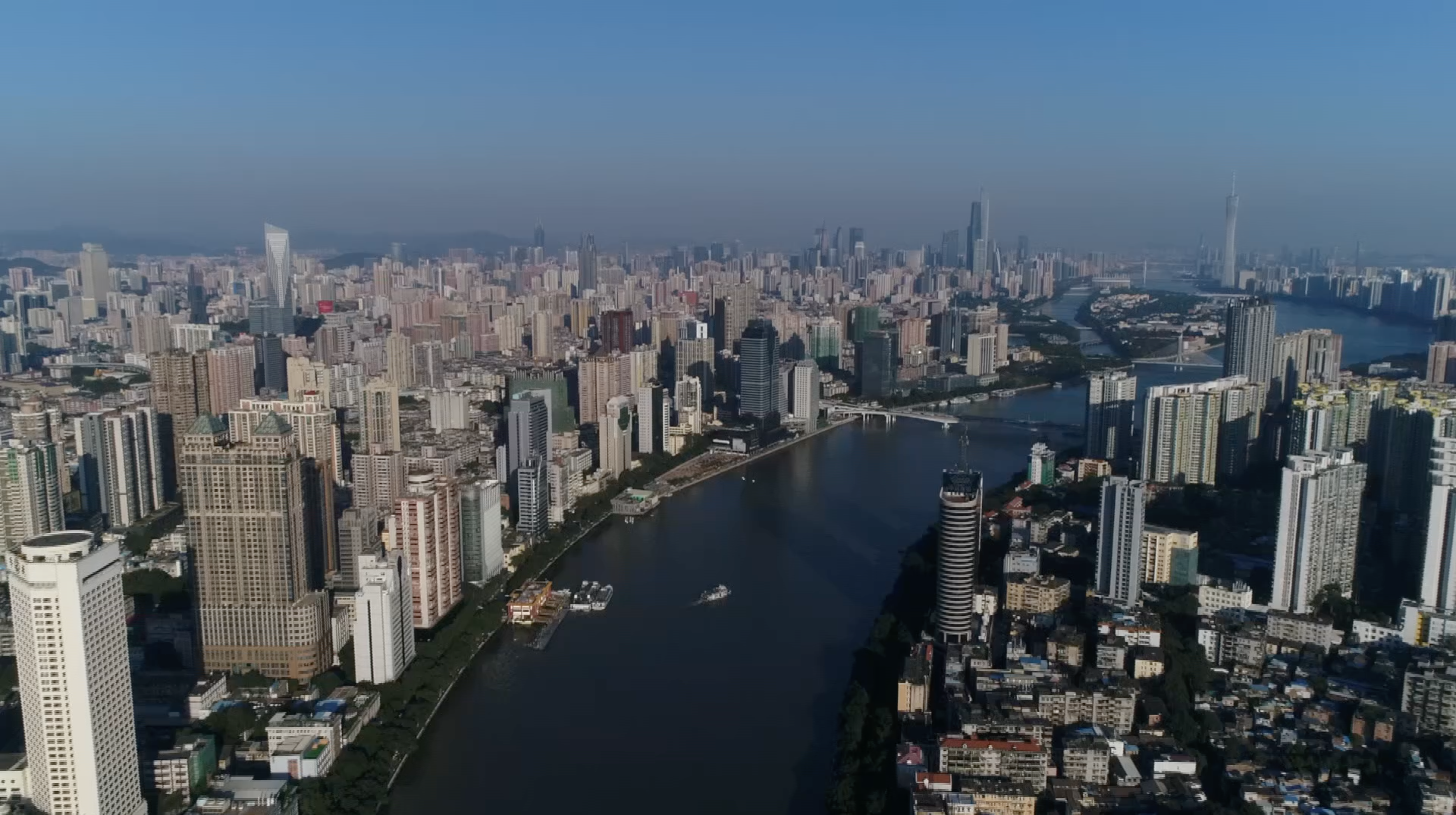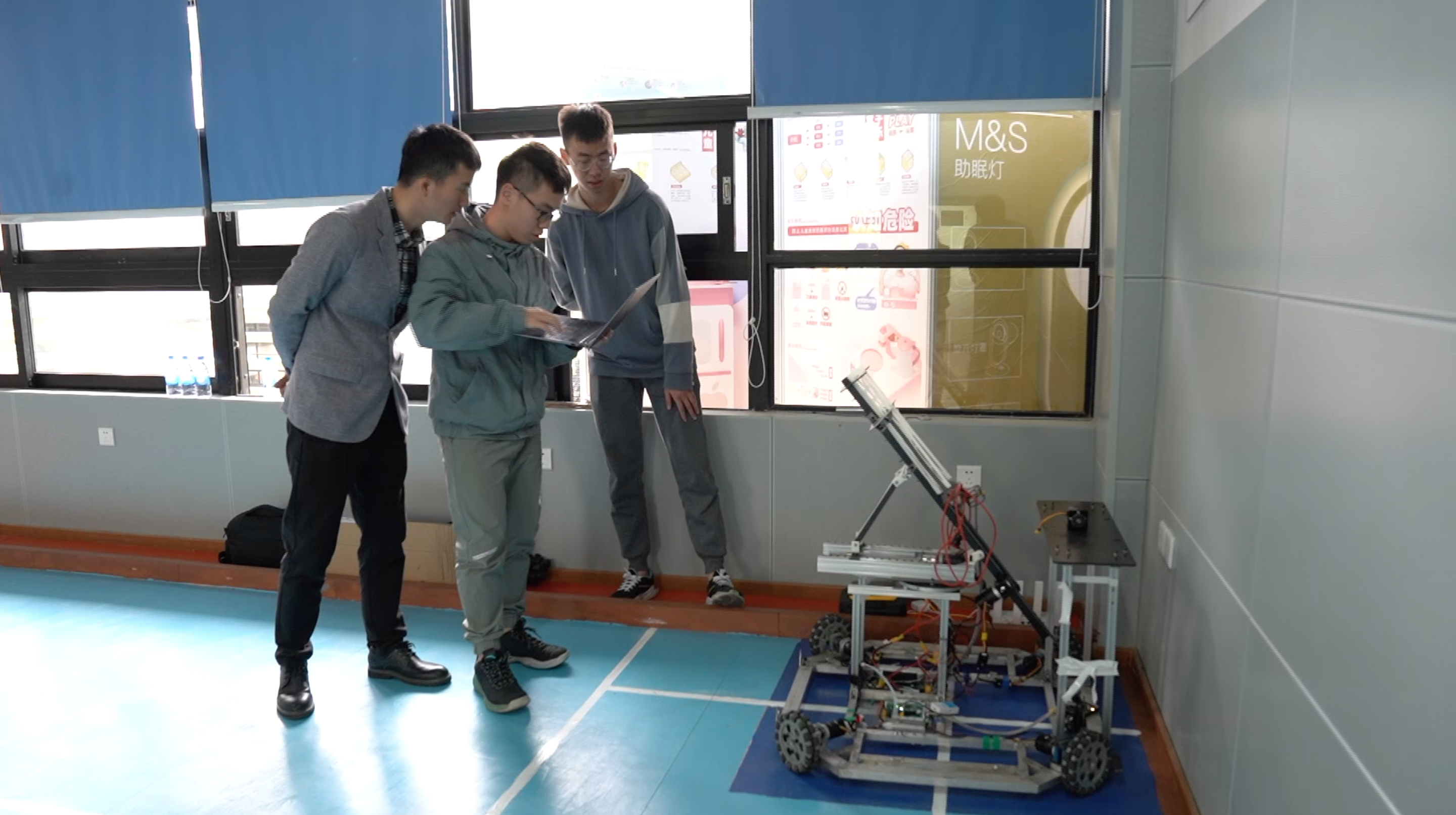03:07

In the bustling hive of office buildings and crammed neighborhoods of Hong Kong, there's a pretty sizable industry of mini storage. For 20 years people have used small warehouses to put things they don't have space for.
But across the border, Chinese mainland cities are just waking up to their potential. Anticipating greater demand, Hong Kong entrepreneur Felix Wong co-founded Kingkong Mini Storage in Guangzhou in 2017 and gave the old idea a digital facelift.
"Self-storage is something you don't use very often. Maybe you visit it once or twice a year, once a week tops. And people often lose their keys. From the get-go, we designed it so that you can access it with your phone," said Wong.
A scan on a WeChat QR code is all it takes to book, renew leases, make payments and communicate with the company: something that China – already the world's second largest digital economy – has a knack for.
"Chinese consumers are very tech-savvy and are willing to try new things. This is great because it helps us grow when we can learn from the users' experience," Wong said.
The company has grown fast, expanding to 20 locations in south China's Guangzhou and Shenzhen in just three years.
"The biggest driver has been property prices," Wong said, adding his customers are split between individuals and corporate clients, both looking for more affordable space to store their items as the city's housing costs more than doubled in the years since he launched.
A burgeoning class of small e-commerce retailers is also using the lockers for last-mile deliveries.
"In some ways, the COVID-19 pandemic has been good for our business too, though the circumstances are not ideal," Wong admitted.
"Company downsizing, people being stuck overseas, or even an uptick in divorces, tend to lead to more storage uses."

Felix Wong, Hong Kong entrepreneur and co-founder of Kingkong Mini Storage, March 4, 2021, Guangzhou, China. Huang Yi/CGTN
Felix Wong, Hong Kong entrepreneur and co-founder of Kingkong Mini Storage, March 4, 2021, Guangzhou, China. Huang Yi/CGTN
Location, location, location
For a tech-driven startup, it's a no-brainer to set up shop inside the world's factory, where all things go electronic, now poised to become a new global innovation hub.
"All of our facilities and equipment are procured within the Greater Bay Area. There are many IoT (Internet of Things) hardware suppliers and tech providers in this region," said Wong. "It's very crucial for our startup to have this kind of skeleton or backup resources for us to have a higher success rate."
The Guangdong-Hong Kong-Macao Greater Bay Area, which covers nine cities in Guangdong Province and the two special administrative regions, already accounts for 12 percent of China's GDP and is expected to enjoy an economic output of $4.62 trillion by 2030.
As China makes tech innovation a national priority in its 14th Five-Year Plan (2021-2025), the Greater Bay Area's dense network of suppliers, large skilled labor force, mature logistics infrastructure and a combined population of 70 million people are reasons why it's a magnet for new startups.
A sweet spot
"As a Hong Kong startup on the Chinese mainland, we somehow get benefits from both sides," Wong explained.
Under Hong Kong's Dedicated Fund on Branding, Upgrading and Domestic Sales (BUD Fund), new businesses can apply for grants of up to HK$1,000,000 ($128,700) per project. The Hong Kong government matches the companies' investment to help them scale up in the Chinese mainland and Southeast Asia.
Guangzhou meanwhile is offering a slew of incentives, from lowering business costs to access to trade officials and subsidies for hiring graduates.
Business veteran and Hong Kong native Jack Lam runs the Guangzhou Tianhe District Hong Kong-Macao Youth Association. The incubation hub has helped more than 8,000 young people from the two special administrative regions kick-start their businesses on the mainland.
"New startups in China have to jump through a lot of hoops, from corporate tax and hiring to the legal paperwork. Here we have professionals from the government to help them troubleshoot," Lam said.
Besides having administrative chores taken off their hands, the startups also get on a fast-lane into the market.
"One of the biggest fears for startups is not being able to identify their customers or revenue source. With our contacts in local chambers of commerce and other trade resources, we can help them enter the market quicker," according to Lam.
The local government is also offering as much as 4.5 million yuan ($640,000) in funding to each project under joint research and development between Guangzhou and Hong Kong.

Students gather at the Guangdong-Hong Kong Robotics Union Academy, March 3, 2021. Huang Yi/CGTN
Students gather at the Guangdong-Hong Kong Robotics Union Academy, March 3, 2021. Huang Yi/CGTN
What's in it for the mainland?
"Forty years of reform and opening up has led to amazing progress, but when it comes to professional services, the mainland still lags behind the special administrative regions and the international community," said Lam.
"Hong Kong and Macao have a lot of expertise in architectural design, healthcare, education, as well as accounting and legal services. So we will ramp up our support in those sectors."
Hong Kong's experience as an international financial hub is another advantage. The city will play a proactive role in China's "dual circulation growth strategy", serving as a gateway between the domestic market and the rest of the world.
Guangdong also wants to leverage Hong Kong's experience in training high-tech engineers, whilst Hong Kong needs the mainland's industry resources.
The Guangdong-Hong Kong Robotics Union Academy is at the forefront of bringing those two together. It's a tie-up between the Guangdong University of Technology and the Hong Kong University of Science and Technology (HKUST). The hope is a marriage between Hong Kong's engineering education and Guangdong's supply chain will fuel a booming advanced manufacturing sector.
Students are mentored by experts from both sides and have gone on to work for leading tech firms or start their own ventures. Drone-maker DJI is among a growing list of big names tapping into the academy's talent pool. Years ago DJI's founder Frank Wang Tao himself was taught by Professor Li Zexiang of HKUST, who founded the robotics academy in its current form.
"To train innovators and visionaries that meet industry demands, we need to introduce innovative approaches. Our robotics academy is a great example. Our graduates are very well-paid and well sought-after," said Qiu Xueqing, president of Guangdong University of Technology and a doctor of engineering himself.
Qiu said the university adds more than 10,000 recruits to the local engineering workforce every year, more than anywhere else in Guangdong.
"If we keep this up, Guangdong's future as a manufacturing powerhouse is guaranteed."

Students gather at the Guangdong-Hong Kong Robotics Union Academy, March 3, 2021. Huang Yi/CGTN
Students gather at the Guangdong-Hong Kong Robotics Union Academy, March 3, 2021. Huang Yi/CGTN
Greater Bay Area: Greater potential
In a lab of buzzing prototypes and fresh-faced engineers, there's a sense the future belongs to those with bold ideas and are not afraid to experiment.
That's a philosophy Felix Wong knows well. The 33-year-old quit his job at a Fortune 500 company to dive into the world of startups.
As he starts his fourth year as the boss of a now 18-person firm, he has some words of advice for young visionaries back home.
"If you have a good idea, don't just think about Hong Kong, think about the Greater Bay Area and see how much more you can achieve," he said.
The potential is real, so is the financial trade-off. "The people and rental costs are much higher in Hong Kong. The money you have to spend on your startup is so much lower on the mainland, but the market here is bigger," he said.
"So, step outside your comfort zone, and never let your bright idea get killed by high rent".
(Cover: A bird's eye view of Guangzhou in the Guangdong-Hong Kong-Macau Greater Bay Area, March 2021. Qin Shaolong/GRT World)

